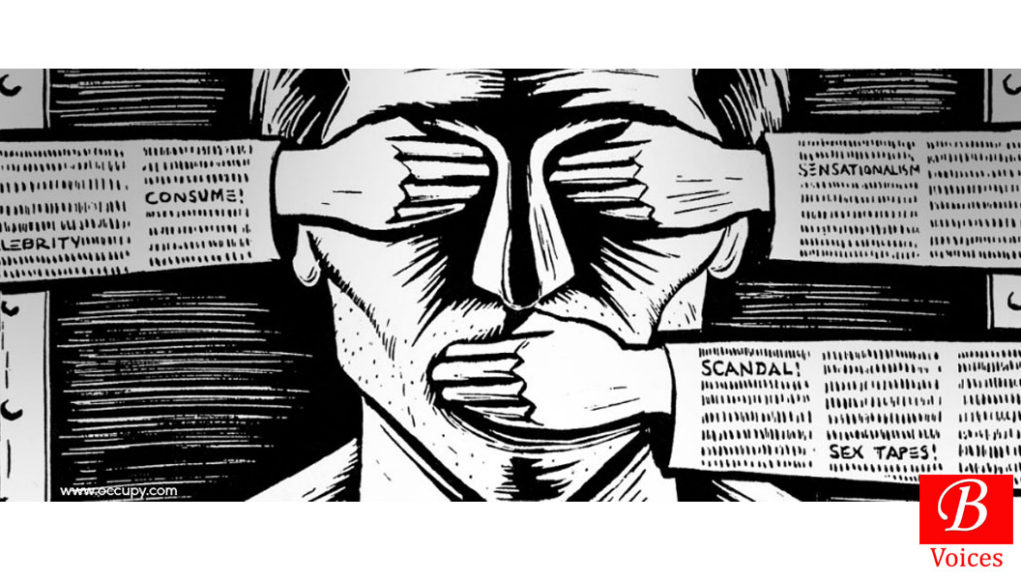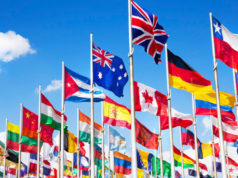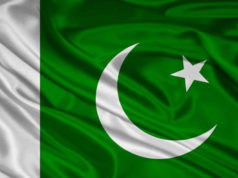Nizam Rahim Baloch
May 3rd is commemorated across the globe as “World Press Freedom Day”. Every year this day comes in life of journalists with new updates about their fellow professionals having a variety of menaces in their respective countries ranging from State’s strident steps of curbing the rights of journalists for doing their duties. Is it not fiasco that in last year 259 journalists were reported to be in jails? Be that Middle East, North Africa, South East Asia, Central and South Asia, the sufferings of the journalists are aggrandizing due to impunity to the perpetrators who are using polemical means to refrain media from doing its job. There is not a single day that the news of torture, kidnap or arrest of journalists by non-sate or state-actors does not come.
Read Also: Editorial: We Vow to Stay Critical
Regrettably, it is twenty first century which should have been free from traditional allegations leveled on media to deprive people from their very right of receiving credible news. Additionally, when one pours on the constitution and laws of the nation-states, each of them has created some splendid leverage to media but when it comes to implementation the results are reverse. Turkey, a state after world war on defeat was formed by charismatic leader Kamal Ata Turk on the principles of secularism is today depicting the bleak picture of France and Germany of nineteenth century. The military bid for coup last year was condemned by majority of world press but after the failure of that bid, many journalists in Turkey were put behind bars to silence their voices. Recep Tayyip Erdogan, authoritative President of turkey has crossed all ambits of international law and bypassed its own constitution which emphasizes on freedom of press. He is inflicting cruelty over the journalists.
Egypt is another precedent where General Sisi now President Sisi has made the profession of journalism a taboo for shrewd journalists by using power to silence them. As a result a large number of journalists have either left Egypt or adopted another profession to avoid further actions of Egypt’s strong man. On the other hand, the west particularly America who delineates itself the champion of free press is fully supporting this man politically, diplomatically and militarily. Saudi Arabia and Iran, the two leaders of proxy wars in Middle East have fully controlled media in their respective states. Let’s see African continent here occasionally a journalist’s own news of murder or abduction comes prior to his news report on issues that are repugnant to the interests of state or militant groups such as Boko Haram and Al-Shabab. Hence there are few world organizations such as Free Press Unlimited which report the actual updates about the life and work of such journalists. North Korea, run by Kim Jong-un has made North Korea a no go area for world press. The state-controlled media has been assigned the task of spreading ultra-nationalism and vindicating war rhetoric’s of its leader.
Western media has seen underscoring on rise of populism in the west and the threats from militant Islamic state. No doubt, there is an obvious distinction between the modus operandi of media in the west and rest of the world but western media is also culpable of promoting racism and narcissism against the Muslim diaspora in west. This farcical attitude would ultimately mitigate the very rich tolerant and pluralist culture of the west. Let’s analyze South Asia, home to one-fifth of global population. India, world second largest populated state and largest democracy is busy with restricting media particularly social media in reporting the atrocities being committed in South Kashmir. The ban on social media network in Kashmir is the testimony of cynical trends in Right-wing government in Delhi. This policy of Prime Minister Modi, no doubt, would help him to egg on conservative Hindu population of India to vote Bharatiya Janatha Party but the repercussions would hurt the secular spirit envisaged by Nehru and the later secular leaders of modern India.
Now let’s have a look at Pakistan. It is full of dilemmas. Here non-issues are deliberately made real issues while the genuine issues do not come on surface. The censorship of news and media blackout of Fata and Balochistan from mainstream media can assess us to gauge the level of freedom of press. Joining media as profession is regarded a risky job in Pakistan in general and Balochistan in particular. Here there is no one single opposition to media rather the journalists receive threats from religious militants, sectarian groups, separatists and last but not the least from State security apparatus. Article 19-A of Constitution of Pakistan grants freedom of expression but it has never been fully implemented.
So, these were the main challenges of media globally. The future of press depends upon the policies of states and the nature of world order. We must bear in mind that the rise of China, a state strict on press, resurgence of Russia and the triumphs of far right in the west, are not positive indications. However, we can still be optimistic that media amid such threats is still committed to do its job. It is a thorny path but consistent struggle with the cooperation of citizens and civil society can help Press to bring a paradigm shift sooner or later.
Author holds a Masters Degree in Political Science from GC University Lahore. He writes for Balochistan Voices and Free Press Unlimited.
Share your comments!








